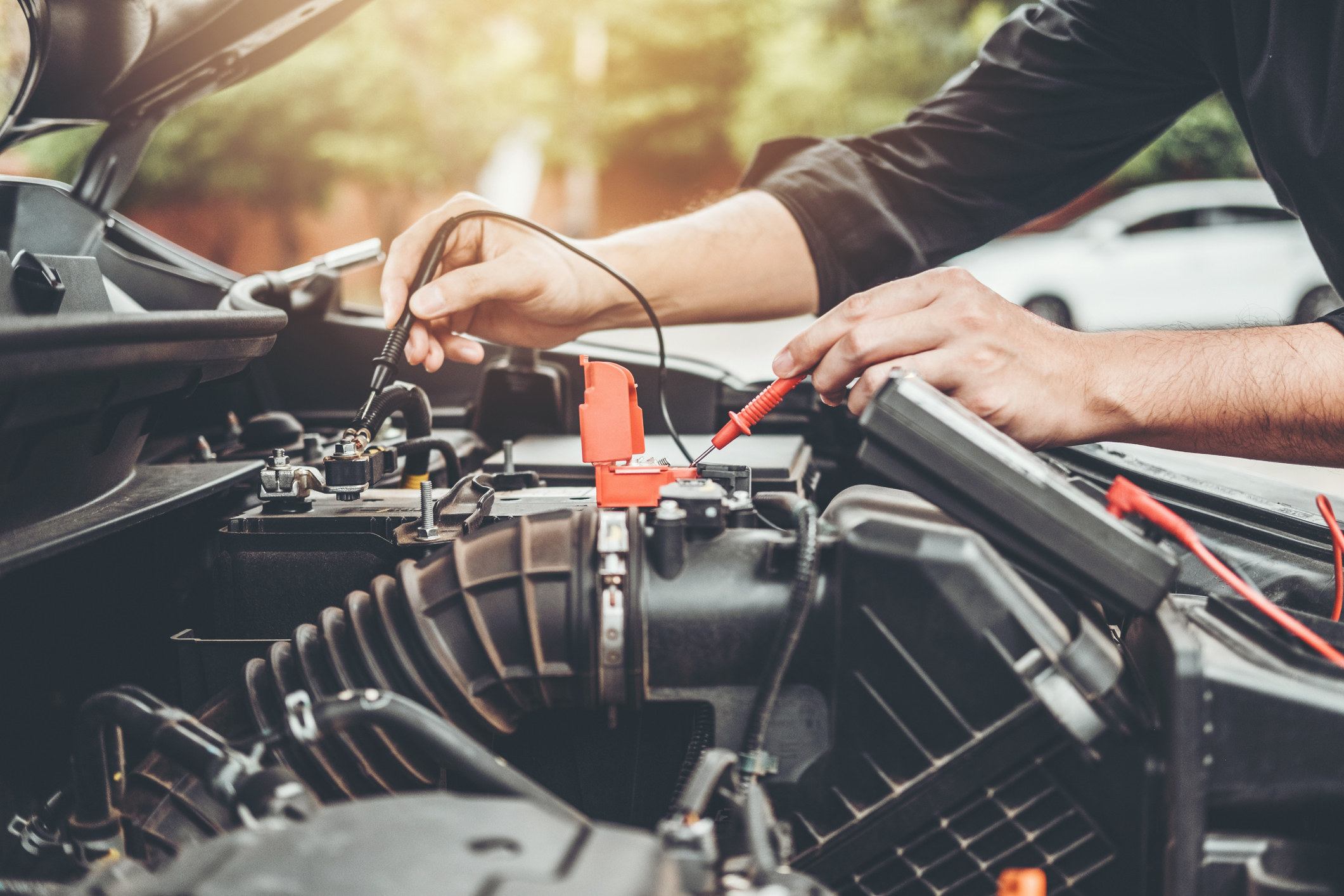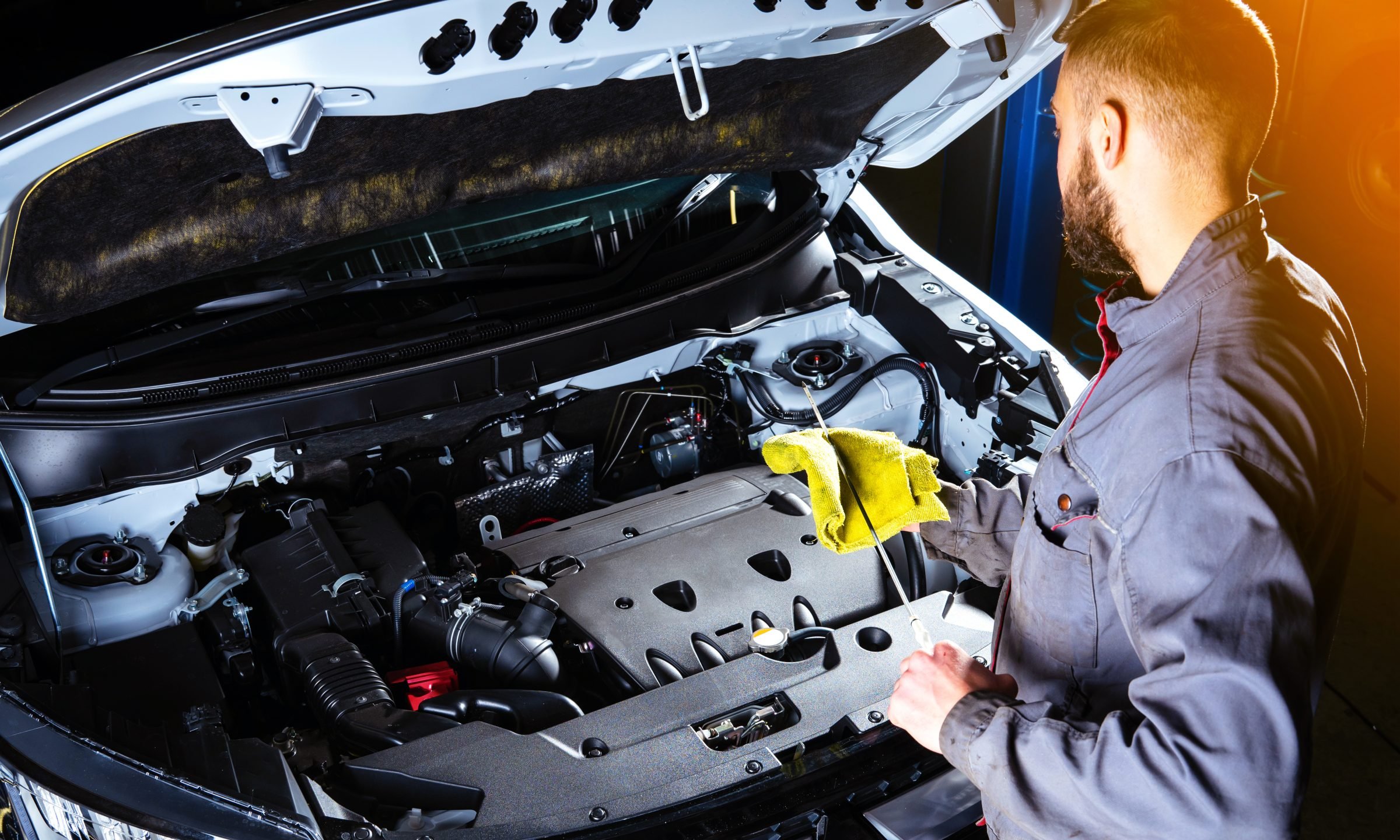All Categories
Featured
When your auto begins to overheat, it can be a frightening and stressful scenario. However, comprehending how to react in these moments and taking steps to avoid future getting too hot can assist shield your automobile and prevent pricey repairs. If your vehicle overheats and just how to stop it from occurring again., here's what to do.
What to Do If Your Cars and truck Overheats. Pull Over and Shut Off the Engine The first thing you ought to do if your automobile begins to get too hot is to draw over to a safe area, such as a parking great deal or the shoulder of the road. Transform off the engine instantly to stop further damage. Running an overheated engine can trigger irreparable damage to the internal parts, consisting of the radiator and cyndrical tube heads.
Allow the Engine to Cool off After shutting off the engine, offer it time to cool down. Opening the hood can help launch heat, yet be mindful as the engine and bordering locations may still be extremely warm. Wait at the very least 15-20 mins before attempting any kind of further activities.
Inspect the Coolant Level Once the engine has cooled down, check the coolant degree. Never ever open the radiator cap while the engine is warm, as this can trigger hot coolant to spray and melt you.
Check for Leakages or Broken Hoses While you are checking the coolant degree, check for any visible leaks or damaged hoses under the hood. Fractured or broken pipes can trigger coolant to leak out, causing a getting too hot engine. If you spot any issues, you might require to ask for roadside assistance or a tow to get the automobile to a technician.
Require Help If you can not determine the reason of the overheating or the concern continues after topping off the coolant, it's best to call for roadside aid. Driving with an overheated engine can trigger serious damages to your vehicle and leave you stranded.
![]()
Exactly How to Stop Your Auto from Getting too hot. Inspect Coolant Levels Routinely One of the main sources of overheating is reduced coolant levels. Make it a routine to examine your coolant degrees on a regular basis and cover them off if required. Refer to your automobile's guidebook for the suggested coolant blend and upkeep periods.
Examine Your Radiator Your radiator plays a vital function in keeping the engine cool. Make certain there are no obstructions or particles blocking air movement via the radiator. If your radiator is obstructed or damaged, it may not work properly, causing overheating.
Maintain Your Cooling System The cooling down system should be purged and re-filled periodically. With time, coolant can become infected or lose its performance. Adhere to the manufacturer's recommendations for flushing the system, normally every 30,000 to 50,000 miles.
Monitor the Thermostat and Water Pump The thermostat manages the temperature of the engine, while the water pump flows coolant with the engine. It can create the engine to overheat if either of these parts falls short. Have your mechanic check the thermostat and water pump during routine upkeep.
Stay Clear Of Overloading the Vehicle Overloading your automobile, especially on lengthy journeys or warm days, can stress the engine and the air conditioning system. Bear in mind your vehicle's weight limits and attempt to prevent bring heavy lots, specifically when driving in severe temperatures.
Drive with Care Aggressive driving, such as speeding or fast acceleration, can increase engine anxiety and heat production. Slow down, particularly on hot days or when driving up high slopes, to minimize the threat of getting too hot.
![]()
Conclusion. Knowing what to do if your automobile gets too hot can prevent further damages to your engine and help you handle the scenario securely. By on a regular basis checking your coolant degrees, checking the radiator and tubes, and preserving the cooling system, you can reduce the threat of overheating. With aggressive treatment and appropriate maintenance, your lorry will stay in great condition, ensuring you remain secure and prevent costly repair services later on.
What to Do If Your Cars and truck Overheats. Pull Over and Shut Off the Engine The first thing you ought to do if your automobile begins to get too hot is to draw over to a safe area, such as a parking great deal or the shoulder of the road. Transform off the engine instantly to stop further damage. Running an overheated engine can trigger irreparable damage to the internal parts, consisting of the radiator and cyndrical tube heads.
Allow the Engine to Cool off After shutting off the engine, offer it time to cool down. Opening the hood can help launch heat, yet be mindful as the engine and bordering locations may still be extremely warm. Wait at the very least 15-20 mins before attempting any kind of further activities.
Inspect the Coolant Level Once the engine has cooled down, check the coolant degree. Never ever open the radiator cap while the engine is warm, as this can trigger hot coolant to spray and melt you.
Check for Leakages or Broken Hoses While you are checking the coolant degree, check for any visible leaks or damaged hoses under the hood. Fractured or broken pipes can trigger coolant to leak out, causing a getting too hot engine. If you spot any issues, you might require to ask for roadside assistance or a tow to get the automobile to a technician.
Require Help If you can not determine the reason of the overheating or the concern continues after topping off the coolant, it's best to call for roadside aid. Driving with an overheated engine can trigger serious damages to your vehicle and leave you stranded.

Exactly How to Stop Your Auto from Getting too hot. Inspect Coolant Levels Routinely One of the main sources of overheating is reduced coolant levels. Make it a routine to examine your coolant degrees on a regular basis and cover them off if required. Refer to your automobile's guidebook for the suggested coolant blend and upkeep periods.
Examine Your Radiator Your radiator plays a vital function in keeping the engine cool. Make certain there are no obstructions or particles blocking air movement via the radiator. If your radiator is obstructed or damaged, it may not work properly, causing overheating.
Maintain Your Cooling System The cooling down system should be purged and re-filled periodically. With time, coolant can become infected or lose its performance. Adhere to the manufacturer's recommendations for flushing the system, normally every 30,000 to 50,000 miles.
Monitor the Thermostat and Water Pump The thermostat manages the temperature of the engine, while the water pump flows coolant with the engine. It can create the engine to overheat if either of these parts falls short. Have your mechanic check the thermostat and water pump during routine upkeep.
Stay Clear Of Overloading the Vehicle Overloading your automobile, especially on lengthy journeys or warm days, can stress the engine and the air conditioning system. Bear in mind your vehicle's weight limits and attempt to prevent bring heavy lots, specifically when driving in severe temperatures.
Drive with Care Aggressive driving, such as speeding or fast acceleration, can increase engine anxiety and heat production. Slow down, particularly on hot days or when driving up high slopes, to minimize the threat of getting too hot.

Conclusion. Knowing what to do if your automobile gets too hot can prevent further damages to your engine and help you handle the scenario securely. By on a regular basis checking your coolant degrees, checking the radiator and tubes, and preserving the cooling system, you can reduce the threat of overheating. With aggressive treatment and appropriate maintenance, your lorry will stay in great condition, ensuring you remain secure and prevent costly repair services later on.
Latest Posts
Uncover the Premier Auto Repair Coupons in Montclare, Chicago
Published May 25, 25
1 min read
Check Out Premier Auto Repair Care offered by Montclare Auto Repair – Drive with Confidence
Published May 23, 25
1 min read
Enhance Your Building with Overhead Door Equipment
Published May 22, 25
1 min read
More
Latest Posts
Uncover the Premier Auto Repair Coupons in Montclare, Chicago
Published May 25, 25
1 min read
Check Out Premier Auto Repair Care offered by Montclare Auto Repair – Drive with Confidence
Published May 23, 25
1 min read
Enhance Your Building with Overhead Door Equipment
Published May 22, 25
1 min read